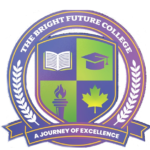Medical Office Assistant

Unlock your future with our cost-effective Medical Office Assistant Diploma – an affordable investment in a rewarding career and a journey of excellence.
This program equips you with essential administrative and clinical skills to excel in a healthcare setting. With a focus on practical training and real-world experience, you’ll be well-prepared for a variety of career opportunities in medical offices, clinics, and healthcare facilities
Program Overview
The Medical Office Assistant Diploma program equips students with foundational knowledge in medical office administration, healthcare procedures, and patient interaction. It emphasizes key skills such as medical billing, scheduling, and maintaining patient records. The curriculum covers specialized topics including medical terminology, office software applications, and healthcare ethics. With a focus on practical training and real-world experience, students are well-prepared for a variety of roles in medical offices, clinics, and healthcare facilities.
Program Highlights: Medical Office Assistant
⦁ Professional Skills Development: Focus on business communication and interpersonal skills.
⦁ Patient Interaction: Training on prioritizing patient requests and responding to basic inquiries.
⦁ Medical Terminology: Comprehensive knowledge applicable to a medical office setting.
⦁ Medical Transcription: Skills to accurately transcribe medical reports.
⦁ Clinical Skills: Training in sterile procedures and various clinical tasks.
⦁ Office Procedures: Learning to navigate medical office software, patient record keeping, office administration, patient billing, and appointments.
⦁ Microsoft Windows Applications: Proficiency in Word, Excel, and PowerPoint.
⦁ Emergency First Aid/CPR Certification: Earn certification in Emergency First Aid and CPR.
⦁ Practical Experience: Four weeks of practicum in real-world clinical settings.
Career Opportunities
Medical Office Assistant can find opportunities in:
⦁ Medical Clinic Office Assistant: Assisting with patient records, appointments, and billing.
⦁ Hospital Unit Clerks: Supporting administrative tasks and patient coordination.
⦁ Specialist Offices Assistant: Managing office procedures and patient interactions.
⦁ Long-term Care Facilities: Handling administrative duties and patient records.
⦁ Public Health Agencies: Assisting with community health programs and administration.
⦁ Medical Receptionist: Managing front desk operations and patient communications.
⦁ Laboratory Clerk: Handling administrative tasks in medical laboratories.
⦁ Physician’s Assistant: Assisting physicians with clinical and administrative duties.
These roles involve supporting healthcare professionals, managing patient records, and ensuring smooth office operations.
Earnings Range
Based on statistics from the Government of Alberta and the Government of Canada, the salary range for Medical Office Assistants in Alberta is:
• Annual Salary Range: $36,504 to $72,675
• Median Annual Salary: Approximately $49,772
These figures can vary based on experience, location, and specific employers.
Admission Requirement:
Standard Admission
Students must meet ONE of the following criteria:
1. Alberta high school diploma, verified by transcript or non-Alberta equivalent, for students who are under 18 years of age
2. Successful completion of the General Equivalency Diploma(G.E.D) with minimum 450 marks in LA and Maths.
Students are required to have a successful interview with the school advisor.
Mature Admission
Students must meet the following criteria:
1. Must be 18 years or older.
2. Students are required to pass the mandated Wonderlic Basic Skills Test (WBST) to demonstrate the necessary competency with a minimum score of 300 out of 500 for admission.
3. Students are required to have a successful interview with the school advisor.
International Student Admission
International students, particularly those who have attained their high school diploma outside of Canada, are required to have their transcripts authenticated by either IQAS or WES in order to qualify for admission to the diploma program.
Proof of English Language Proficiency for both Standard and Mature Admission:
Applicants who haven't completed high school in Canada must demonstrate English proficiency by attaining a minimum Canadian Language Benchmark (CLB) of 7 for entry into the diploma program. Additionally, students whose first language isn't English are required to take the International English Language Testing System (IELTS) and achieve a score of at least 6 in all four sections of the test alongside meeting the CLB Level 7 requirement.
Course Outline
Medical Office Administrative Procedures: 80 hrs. / 4 weeks
In this course, learners will gain knowledge about the basic administrative responsibilities of a Medical Office Assistant. They will learn how to tackle patient reception and patient inquiries, office correspondence, and appointment scheduling. Also, they will learn how to establish and maintain office procedures, including inventory management and purchase and maintenance of capital equipment. Furthermore, this course will teach students how to establish and maintain various office administrative procedures such as documentation, reporting, and interview patients to complete medical forms.
Clinical Procedures: 80 hrs. / 4 weeks
In this course, students will learn the clinical aspects of a medical office. They will learn how to measure vital signs, prepare patients for clinical procedures and assessments, and complete patient screening and simple diagnostic tests. They will learn about the role of medical office assistants in assisting a variety of medical specialists in different clinical settings.
Effective Business Communication: 40 hrs./2 weeks
In this course, students will understand the significance of effective communication in diverse healthcare settings. It also helps them to identify the characteristics of verbal and non-verbal communication. Students will learn how to develop active listening and identify techniques to overcome communication barriers with patients. This course will teach learners about the standard components of business letters and interoffice communication. Also, students will learn how to apply technology in professional communication.
E.M.R., Billing, coding, scheduling/Medical Software: 40 hrs./2 weeks
This course will provide students hands-on experience with industry-standard software. In this course, students will be able to learn the systemic procedure in a medical office setting, including financial transactions and medical billing. Students will learn how to enter and format electronically based medical reports and correspondence in practice management software. Also, students will be taught how to assign diagnostic and procedural codes and create medical billing for provincial medical insurance plans and prepare invoices for other third-party billings.
Microsoft Office Applications and Keyboarding: 80 hrs. / 4 weeks
In the Microsoft Office course, students will learn how to use Windows Operating Systems and computer applications such as Microsoft Office, Word, Excel, Outlook, and PowerPoint. They will also learn how to modify the display of toolbars and other on-screen elements, and they will also gain insight into how to create business documents and electronic presentations.
Medical Transcription: 40 hrs. / 2 weeks
This course will focus on different techniques to improve students' transcriptional skills. Students will be provided with recorded medical data in various accents from medical professionals to transcribe it into the medical document. This course will facilitate students to enhance their professional skills needed to transcribe dictated data accurately.
Medical Law and Ethics: 40 hrs./2 weeks
This course will establish an understanding of ethical practices in clinical settings. Students will be able to identify the difference between a medical assistant's scope of practice and standard of care and the impacts of personal morals on professional performance. Also, they will learn about the significance of informed consent, the confidentiality of patient information, patients' rights, and patient autonomy. Moreover, Students will learn about the difference between a living will, power of attorney, and an advance directive.
Medical Terminology/Abbreviations: 40 hrs./2 weeks
Medical Terminology will introduce students to industry-accepted language. Students will identify the components that create the structure of medical terms and interpret and apply commonly used symbols and abbreviations.
Anatomy, Physiology: 80 hrs./4 weeks
This course will introduce students to the anatomy and physiology of the human body system. Students will learn about the structural organization of the human body, including body cavities, planes, and major organs in each body part. Also, they will learn the function of cellular structure and the function of all organs in the human body.
Pharmacology: 40 hrs./ 2 weeks
This course will provide students with knowledge about different aspects of pharmaceuticals drug administration, their uses, adverse effects, and mode of action. After completing this course, students will be able to differentiate between drugs' generic and brand names and compare basic units of measurement between metric and household systems. They will be able to distinguish between prescription and non-prescription medications and will be able to use equations to calculate pediatric and adult dosage. They will also gain knowledge on the list of abbreviations commonly used in pharmacology.
Practicum: 160 hrs.
In Practicum, Students will be given supervised practical application of their studied field in an actual clinical setting. It will allow students to have hands-on experience on theoretical knowledge they learn during the course.
CPR Training
Upon completing of CPR training course, students will receive First Aid and C.R.P. Certificate
Career Assistance: 20 hrs./ 1 week – Optional
In this module, students will be instructed to prepare an impressive resume and identify important aspects of the job search. This course will also prepare learners for employment opportunities by developing marketing tools and skills for interviews.
Community Service Workers Certifications
In this course, students will fulfill the industry’s most commonly required certifications.
First Aid and CPR Level C: This course caters to both the general public and workplace environments, fulfilling the first aid requirements specified by the Canada Labor Code Standard First Aid and Licensed Child and Adult Care Facilities.
Applied Suicide Intervention Skills Training (ASIST): ASIST is a program designed to train individuals in suicide intervention skills. It teaches participants to recognize signs of suicide risk, engage with those in crisis, and connect them with appropriate support. Developed by Living Works, ASIST provides practical training to empower individuals to prevent suicide effectively.
Nonviolent Crisis Intervention (NCI): This course teaches participants to identify early warning signs of crises and employ verbal and non-verbal techniques to prevent violent confrontations. Non-violent crisis intervention enables early recognition of distress signals and the application of suitable strategies to address situations before they escalate into crises.
Curriculum
- 2 Sections
- 3 Lessons
- 32 Weeks
- This is lesson 1testeing deescription2
- This is Lesson 2swction description 21
You might be intersted in
-
16 Students
-
18 Weeks
-
21 Students
-
44 Weeks





